Understanding Keyword Research
Last Updated 2021-10-16
Summary of The Process
1) Identify what the page is about.
2) Find synonyms just in case your initial thought doesn’t show any decent results over 100 search volume.
3) Perform the search in Google.
4) Take a page that is most similar to what our page is talking about and plug that page into Ahrefs site explorer under URL search.
5) Identify searcher intent.
6) Select target keywords.
Identify What the Page is About
Most of the time we can get away with running our target URL through a quick search in Ahrefs and find what keywords we’re wanting to rank for.
Other times, this doesn’t work.
Take this URL for example:
https://sundaysfordogs.com/food/ingredients
When we plug this into Ahrefs, we get “0” results back.

So what do we do now?
Well, let’s start with a manual look at what the page is about.
If you open the page up, you may clearly see that this page is talking about the ingredients within the products of the company Sundays for Dogs.
Some “buzz” words that stand out to me are.
“Cleanest Dog Food”
Now if we were to plug this into Ahrefs keyword explorer like below:
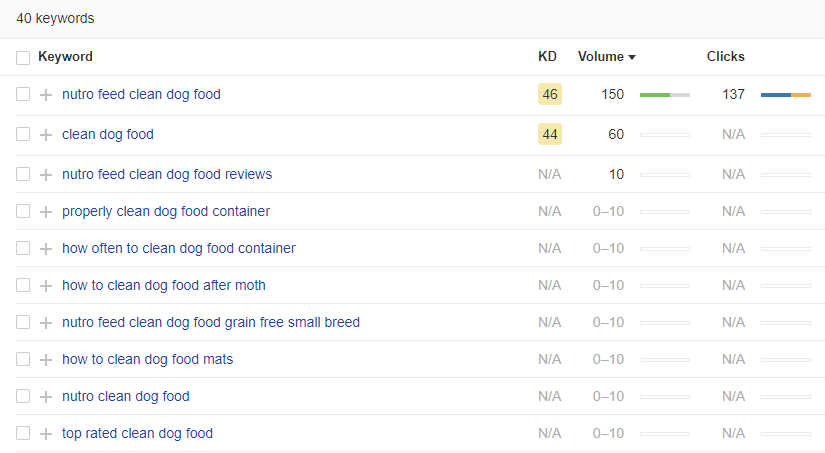
We’re not getting much search volume here around “clean dog food.”
Find Synonyms
So let’s start to think of some synonyms of what the page might be actually trying to convey.
Clean in this context, translates into:
1) Healthy
2) Nutritious
3) Hearty
4) Healthful
Are you following me?
Perform Search in Google
Now that we understand what the page is trying to convey, now we are going to perform a search on Google.
Choose any of the above combinations like so “Healthy dog food ingredients” or “Nutritious dog food ingredients” and view the results.
After looking at page one of Google, we get these results, I’m going to show you what information I takeaway after reviewing this search to direct our keyword usage.
Position 0 – The Snippet
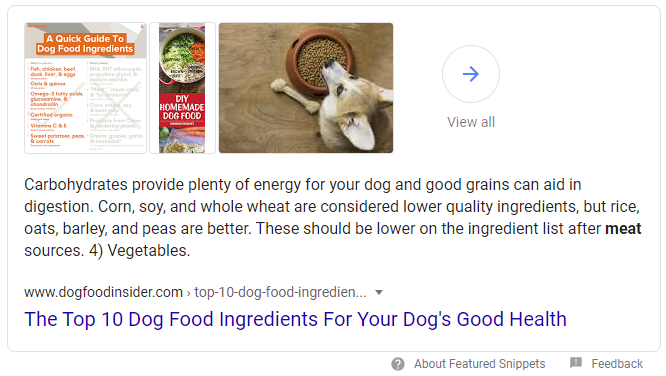
Here, we can see:
1) The article is talking about high quality dog food ingredients, and low quality dog food ingredients.
2) In the title, it mentions the “Top 10 Dog Food Ingredients” for good health.
Plug Into Ahrefs
This article looks to be fairly similar to what we’re wanting to rank for. So, we may take this URL, plug it into Ahrefs and collect a nice list of suggested target keywords to use as shown below.
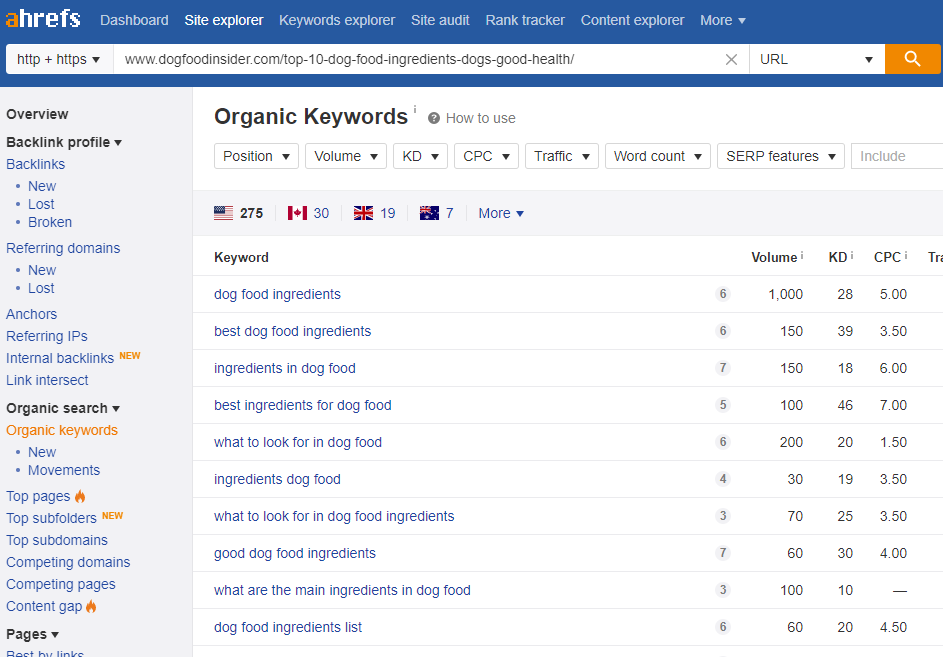
Now it’s time to identify searcher intent.
Identify Searcher Intent
The easiest way to identify searcher intent is to pull up the target keyword list above, and click SERP.
For this example, we’re going to choose “best dog food ingredients.”
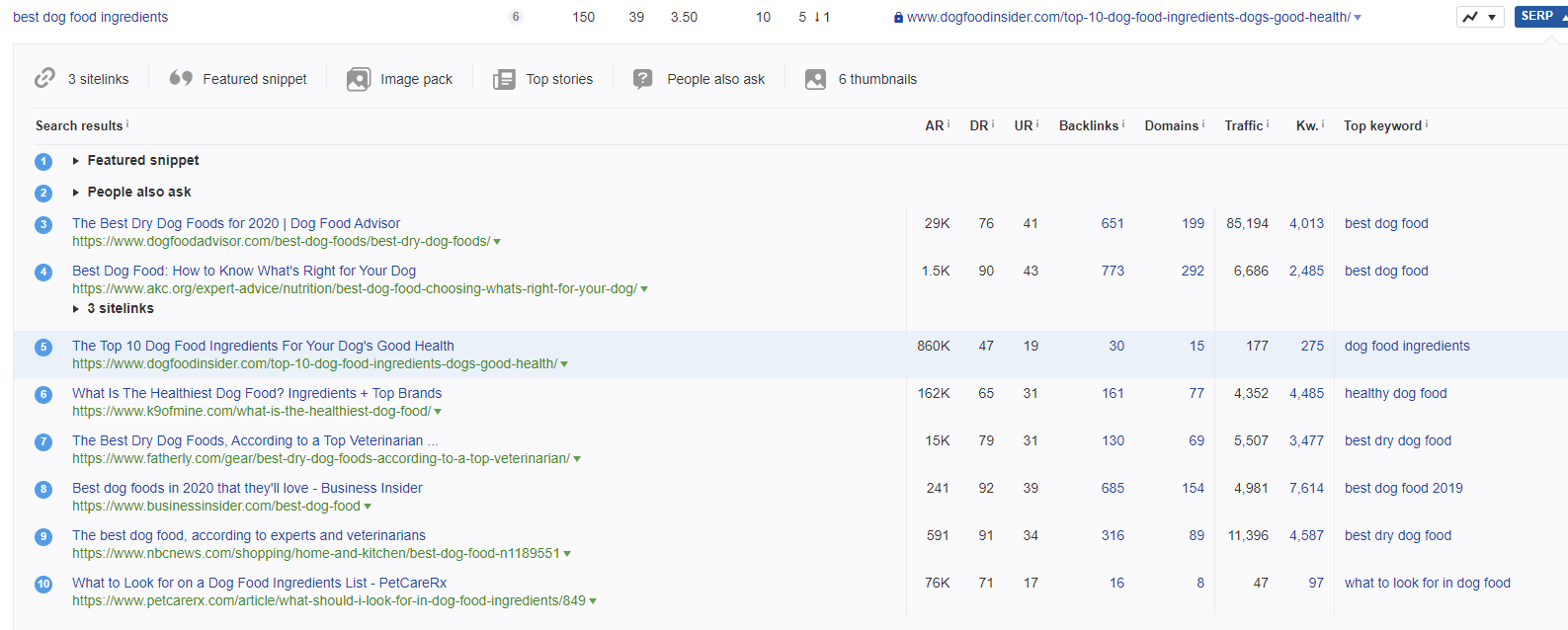
From these titles on the left, it’s easy to pick out what users are actually looking for.
Words like “health” are mentioned 20% of the time. SO users are looking for healthy food.
Words like “veterinarian” are mentioned 20% of the time. SO users are looking for credibility and expert opinions.
And the overall sentiment is to help users find what the best ingredients are for their dogs food.
SO, we’ll want to focus around these areas while optimizing the page if our target keyword is “best dog food ingredients”
1) The Experts List to The Best Dog Food Ingredients
2) Best Dog Food Ingredients According to Experts
3) Veterinarians Say These Are the Best Dog Food Ingredients
By using these combinations of words within the title, meta description, and content of the page, we are more likely to rank for this keyword because we’re matching what Google perceives to be what MOST people are searching for online.
Important to note, sometimes the page we’re optimizing does not contain the right content.
For example, the page we’ve been reviewing here, does not mention veterinarians or expert advice or cite any sources that would claim these keywords to be true.
If that’s the case, do the best you can to suggest content to be added that would make this valid.
A paragraph of text on the page of 200 words about what veterinarians or experts in dog food ingredients would be sufficient enough to help this page drastically. Don’t forget to add the heading as well.
Keyword Research With Surfer
Another way to identify potential keywords and clusters of terms to dive into is to plug your target keyword into SurferSEO and review the popular phrases, words, common words, common phrases, and prominent words and phrases sections within the tool.
Take this example below for the search term NFT Video Games.
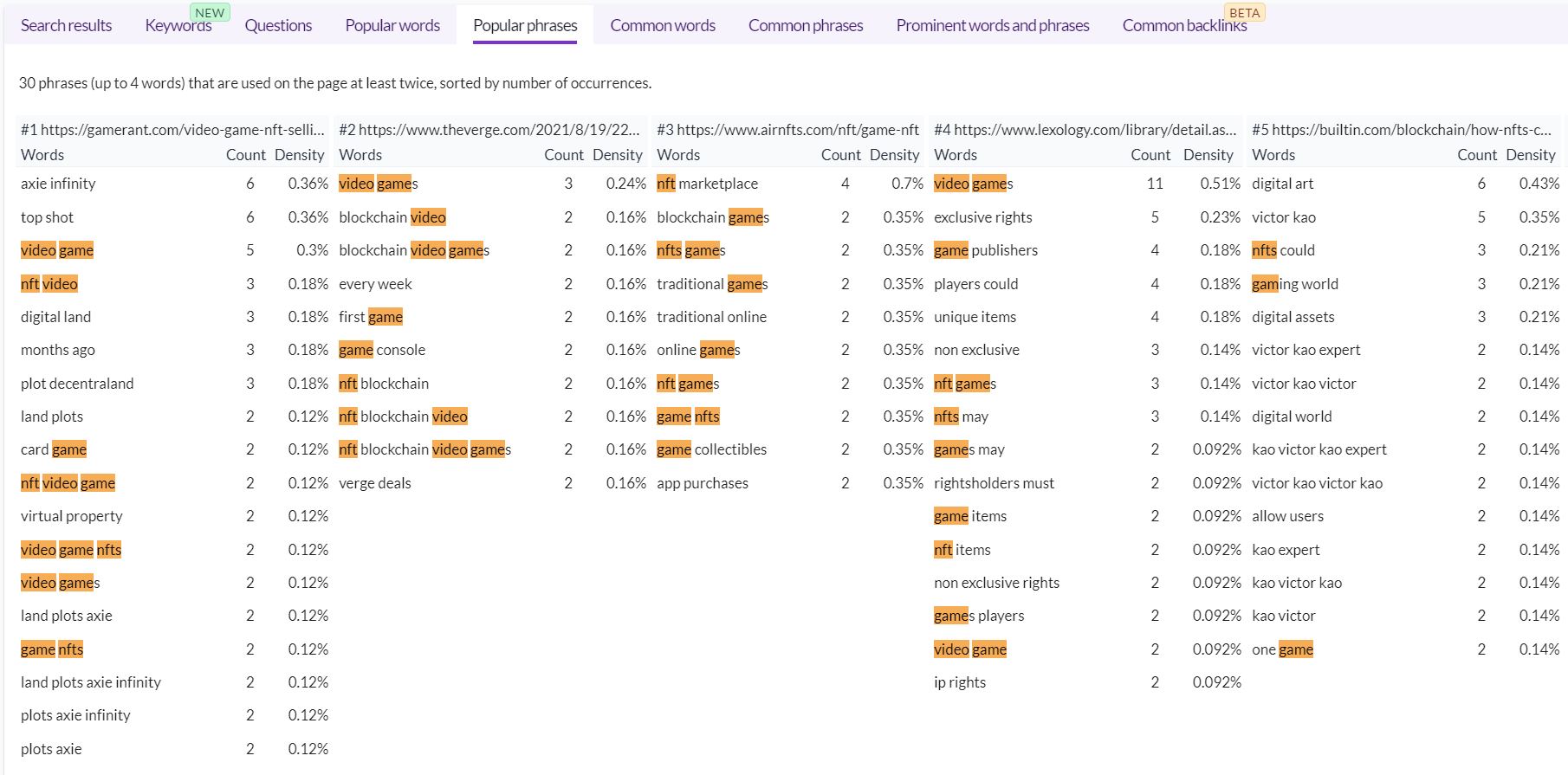
We can see from this list plenty of options to dive further into for research.
1) blockchain video games
2) NFT blockchain
3) Virtual property
4) Game NFTs / NFT Games
5) NFT marketplace
We can also take some of these terms and combine them with our head term to identify areas of interest like:
1) NFT exclusive rights
2) NFT IP rights
3) NFT land plots
4) NFT card games
5) NFT digital land
